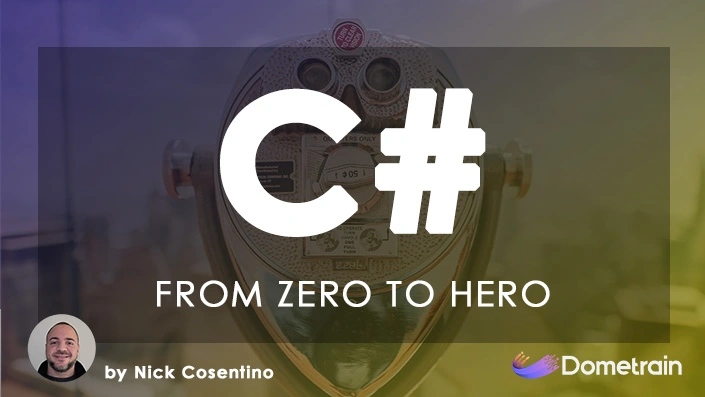Are you starting your career in software development and looking for some advice? This is the second article in an FAQ-style series that focuses primarily on starting your career in this awesome industry! You can find part one of this here!
Applying for Software Development Jobs
How to stand out on an application when you’re starting your career?
I think this is largely going to depend on where you’re applying. Something to consider is that especially with large tech companies, they’re getting thousands and thousands of resumes all the time. It can be really competitive to be able to even land an interview so sometimes if the caliber of other applicants is high, it can make it difficult to stand out.
That’s okay. We don’t have control over others, but we do have control over ourselves! We can try a few different things to stand out and help you get started on your software development journey professionally. The following are things I personally would suggest and may not reflect the exact views of my employers (past, present, or future) and may not reflect those exact views of recruiters/screeners at other companies. There’s my disclaimer!
- Understand what the minimum requirements are and exceed them when you can. It’ll be hard initially, especially when job positions ask for a minimum amount of time as a professional. If you checked out this post and you had several internships, you’re actually already on your way to listing out necessary work experience! If you couldn’t land internships, or this is your first internship you might not have that luxury (and that’s okay!). Does the job description list other skills or experiences that are required? Can you get examples of that on your resume? Remember, if there are many other candidates, it’s easy for screeners to filter out applications that don’t seem to meet the minimum requirements (even if you’re totally awesome!) just because there’s so much volume for them to get through.
- Side projects are your best friend. Think about it though. If 1000 people apply for a job and all have similar work and school experience, how would you stand out? Well, if you’ve been working on some cool stuff outside of work and demonstrating that you have a genuine interest in different areas of software development, that could be huge! Are you going to be working with SQL in your new role? Maybe mention that cool meal-planning platform that you made. Oh, that also demonstrates you know some cross-platform development tools. Awesome! What about that fun web app you made? AND you can put a link to it for them to try out? That could be a huge win if it’s a smaller org that has time to dig a bit deeper into applicants.
For me, side projects are one of the most important pieces to consider. I get it though. Not everyone has the time or the interest to work on stuff outside of their 9-5. And I’m not suggesting this is a requirement or the only way to land a job. I just think this is one of the best and easiest ways to stand out because it shows passion for creating, learning, and interest in your field on top of your work experience (that may or may not look like a majority of other applicants). - Your school grades matter… Until they don’t. I don’t want to give people the wrong advice here, so I’ll try to be clear. Especially during internships and at companies that get a lot of applications, grades are likely going to be a factor. It’s just another super easy way for a company to set the bar high and filter out a large amount of applicant volume. I don’t necessarily feel it’s the best way to filter candidates, but I also don’t blame companies for doing this if there’s overwhelming volume. If two people have identical applications but one received a 5% higher average in all of their courses, if you only have time to interview one you’ll likely pick the one with the higher average. Again, I’m not suggesting this implies the other candidate is not worthy or this will always net a company the best employees, I’m just saying that they need to filter down candidates and it’s an easy way to do it.
With that said my personal opinion is that I don’t care about grades. Not much, anyway. For interns, I’d probably expect someone to do well in their programming courses, but if your calculus and physics marks were super low I really don’t care. Not unless I’m hiring you to do physics and calculus. But generally (and I hope this comment ages well!) I’m not. I’m hiring you to be a productive member of an awesome software development team.
Once it comes time for full-time employment I don’t really care about grades at all. I want to know about interesting experiences that are relatable to what you’re applying for. This will give me fuel for engaging interview questions as well, which is our next question!
What types of interview questions should I expect?
I’ll just throw out another reminder here that this is fully my own opinion and not necessarily the opinion of my past, current or future employers. When I’m interviewing people for software development positions, there’s certainly a minimum expectation I have with respect to programming abilities. It might not be what is popularized on the Internet though.
First off, I need evidence that you have actually programmed before. Ideally this is done in a pre-screen (online, over the phone, etc…) before I’m sitting down with you for a lengthy hour (or more) long interview. I have sat in interviews with people that have claimed multiple years of professional programming experience but could not answer FizzBuzz. What’s not make-or-break for me is your knowledge in a specific programming language. Sure, if you’re an expert in the language(s) we’re using heavily in our stack that’s great for ramp up time. However, I feel that great programmers can learn other languages and be effective with them, and I’m seeking great programmers.
Next, I want to see you problem solve. I’m not impressed by being able to answer an algorithm-based question immediately or jumping right to coding up a heavily optimized solution perfectly the first time around. Why? I’ve known people to memorize these sorts of things. Sure, the pool of questions to pick from feels infinitely large but it certainly does happen when someone lucks out on an interview and they see a question they know an optimized answer for. My interview directly out of university was actually exactly like this, where I was asked one single question and I knew the optimized answer for it in detail (which I disclosed to the interviewers). But as an interviewer, I have no interest in picking candidates based on their memorization abilities. I want you to explain your thought process. I like adjusting the question on the fly with different constraints and have you explain why you might change your design or approach. Why? Because in the real world of software development this kind of thing happens all the time. What doesn’t happen all the time are really contrived theoretical algorithm questions popping up regularly. And just to wrap up thoughts on this point, there are absolutely real situations where applying knowledge and understanding from these algorithm questions is critical, but I don’t feel memorized solutions to these help in the real world.
If you plan on working in big tech companies, especially ones with services running in the cloud, you’ll probably be asked system design questions. I won’t write much here because my thoughts on this are essentially the same as the previous paragraph. Don’t memorize. Understand, explain trade-offs, be able to work through different constraints in your systems! There are plenty of sites online that offer examples to go through, and great examples on YouTube, so I’d just take the time to go learn and understand (not memorize).
Finally, I love seeing how people work together on teams. This is something I’m trying to understand throughout the entire interview process. I want to make sure you’re collaborative and that you’ll work well with others. In the real world of software development, you’re almost always working with others. Being the most amazing programmer but not being collaborative doesn’t work well in any environment that I’ve worked in over the last 10+ years.
How do I stand out in an interview?
If you’ve nailed down the stuff in the previous points, you’re probably doing great. But beyond that, I want to see and hear about your cool work experiences. I want to hear how you problem solved and developed creative solutions. Tell me your favorite project. Explain how you learned from one of your failed projects and what you’d do differently going forward. Tell me more details about how you work well with others, even when there were difficulties between team members. Tell me about unique challenges you worked through with your team and how you contributed to the success.
I love seeing people get pumped up about their hobby projects they work on outside of work. It helps to demonstrate that you’re constantly learning, challenging yourself, and that you’re passionate about software. As I said towards the start of this post, I understand that not everyone has time for this kind of thing so it’s not a make-or-break item on an interview. But we’re talking about standing out, and for me, this is something that becomes memorable.
Should I reach out to (hiring) managers directly?
This can largely depend on the organization and how they approach hiring. So my suggestion here is hopefully a good-enough general approach to answer this.
First off, I think you should start by going through the normal HR/recruiting channels that a company has to offer. Get into the system. Get your application/resume in and get queued up so that the right processes can get underway. If you’re already interested in the job, I think this is your first starting point. When people reach out to me and ask about hiring, this is exactly where my mind goes.
Next, if you’re reaching out to managers, I think there’s some do’s and don’ts to consider.
- DON’T assume that every manager on LinkedIn is currently hiring or directly involved in the hiring process. The conversation generally won’t go too much further if you’re asking person for a job and they’re not in a position to be hiring. Chances are they’ll recommend you do what I suggested above and go through normal recruitment channels.
- DO reach out with a specific posted position if you think it’s relevant or know it’s specific to their team. Structure your conversation around expressing interest in this role and ask your clarifying questions about it.
- DON’T ask for referrals if you’ve never worked with the person. I personally don’t know why people expect this to be successful. If I’m recommending someone, it’s my name going along with that referral. Instead of asking for a referral, consider asking if they’re aware of other roles or information about where you can find additional posted roles.
- DO be personable and respectful. Express interest in the area this manager is hiring for (after you’ve confirmed your assumptions, right?) and ask about the best way to get visibility for applying. If they suggest the best way is truly going through the HR/recruitment pipeline, being more pressing beyond this likely won’t be beneficial. Some managers do more hiring directly and other times this is largely through these other channels.
- DON’T reach out with expectations that by doing so you will guarantee that you’ll be considered for a role or that the manager has an obligation to set you up for this. This goes back to being respectful. Generally, people will try to help if they can, but it’s unfair to set expectations that they’ll drop what they’re doing to help you get a position.
Starting Your Career FAQ Roundup
This series of FAQ posts was actually inspired by an individual reaching out with some very specific questions that I could answer. Many of these were asked by others over time, but this individual was polite, patient, and concise in what he wanted information on. There were no demands of me or expectations I’d secure him a job. I think his approach was spot on. I’m always happy to try and help if you reach out to me on social media or comment on posts asking for help.
If you’re ready jump over to the next FAQ entry in this series! If you haven’t already, consider subscribing to my weekly newsletter to have software engineering tips sent directly to your inbox!



